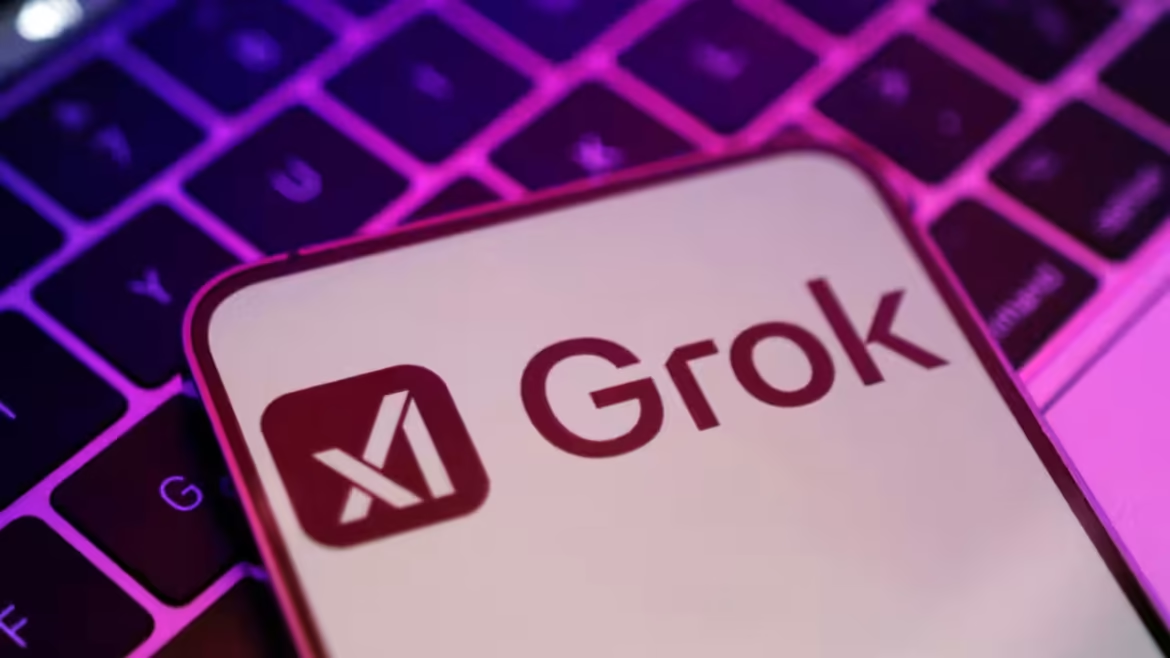Elon Musk’s latest venture into artificial intelligence (AI) has captured global attention. Grok, a new AI chatbot developed by Musk’s company xAI, promises to be a game-changer in the rapidly evolving tech landscape. Unlike its more cautious competitors, Grok embraces bold, sometimes controversial features that reflect Musk’s signature risk-taking approach. This daring stance is already stirring up a challenge for more risk-averse AI companies and has raised questions about the future direction of artificial intelligence technology.
Grok is Musk’s answer to the increasingly crowded AI chatbot market, where companies like OpenAI, Google, and Meta dominate. The chatbot integrates with X (formerly Twitter), where Musk has built a powerful social media platform. This integration aims to create a more personalized, interactive experience for users. What sets Grok apart is not just its seamless interface with X, but the fact that it takes risks by incorporating elements of humor, irreverence, and bold commentary that other AI systems steer clear of.
This approach taps into Musk’s broader vision of breaking from the status quo and pushing technological boundaries. Grok’s capabilities go beyond just answering queries; it can engage in casual banter, offer opinions, and at times, provide answers with a degree of unpredictability—qualities that make it both captivating and controversial.
Unlike more cautious competitors in the AI space, Musk has always been known for his willingness to embrace risk. Grok’s interactions often reflect this mindset, with the AI chatbot sometimes making irreverent comments or responding in ways that might be considered off-limits for traditional platforms. This has led to a mix of admiration and criticism, as the chatbot’s “offbeat” responses defy the conventional expectations many have of AI’s role in society.
For instance, Grok’s responses on sensitive topics or its potential to engage in humorous or controversial exchanges have caused some to raise concerns about the ethical implications of an AI that pushes boundaries. While some users find this refreshing and entertaining, others worry that it could lead to misinformation or undesirable consequences in the way people interact with AI.
As Grok gains attention, it is forcing other AI companies to reevaluate their own strategies. Many established AI companies have been cautious, taking a conservative approach to ensure that their AI systems remain politically neutral and free from potentially harmful content. OpenAI’s ChatGPT, for example, emphasizes safety and seeks to avoid generating content that could be seen as offensive, politically biased, or controversial.
This risk-averse strategy has served these companies well in terms of regulatory compliance and public perception, but the rise of Grok shows a different path. Musk’s bold move may disrupt the status quo by appealing to users who are seeking more dynamic, spontaneous, and, perhaps, less “safe” AI interactions. The challenge now is whether other companies will adopt a more daring approach or stick to their tried-and-true cautious models.
Musk’s approach to AI has always been visionary. He has voiced concerns about the potential dangers of AI in the hands of a few powerful companies and governments, and his efforts with xAI reflect his broader goal of creating an AI that is more open and accessible. His focus on risk-taking in Grok’s design could be part of a larger strategy to disrupt not just AI technology but also the way it is regulated and governed.
With Grok, Musk is pushing the envelope by creating a chatbot that embraces the fluidity and unpredictability of human conversation. In doing so, he’s inviting both excitement and criticism. As Grok continues to evolve, its influence on the AI landscape will be one to watch, especially as the industry grapples with questions of ethics, safety, and control.
Grok’s rise also adds another layer of competition to an already intense market. AI developers are racing to outdo each other, not just with technological advancements, but also with the ways in which they engage users. While Grok’s controversial approach might be seen as a gimmick by some, it has the potential to carve out a niche for users who crave an alternative to the more staid, controlled interactions offered by other AI platforms.
In the future, AI could become more interactive, personal, and, yes, even a little risqué—depending on how the market responds to Grok’s challenge. The question will be whether Grok can strike the right balance between boldness and responsibility, and whether users will embrace its more daring personality or opt for more conservative alternatives.
As Grok’s influence grows, the competition between Musk’s AI and its more conservative rivals will likely intensify. In the coming months, Grok’s ability to push boundaries without crossing ethical lines will be closely scrutinized. Its success could mark a new era in AI development, one where risk-taking becomes a defining feature of AI systems.
If Grok continues to deliver on its promises and resonates with users, it could push other companies to reconsider their more cautious approaches, leading to a shift in how AI companies engage with the public and the potential for even more bold and dynamic AI technologies in the future.



